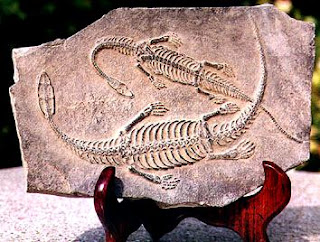Norman Geras does a nice personal blog: civilised, intelligent, clean in its presentation, full of delicious eccentricity, and well the right side of literacy. That makes it better than most on at least five counts.
Doubtless to celebrate the country's imminent return, after eight years of usurpation, to a fit and decent condition of democracy, he has currently set himself the task of locating songs that belong to each of the Fifty States:
The rules of the series, as decided on by me, specify that a song is eligible for the list for any given state when the name of that state figures in either the song's title or in its lyric or both. The state may be used adjectivally, as in 'South Texas Girl'. But reference to rivers, where their names coincide with the names of states (Colorado, Mississippi, Ohio), doesn't count. Rivers run on and cannot be tied down so. And reference to some place in the state, like a city or a geographical feature, also doesn't count, unless the name of the place includes the name of the state adjectivally.The fifty States, of course, each have their State song, along with their State bird, State flower, State flag, State tree, even State dinosaurs and fossils (including States where the rocks do not belong to the Mesozoic era). Most of those "official" State songs are pretty dire stuff:
I love your redwood forests - love your fields of yellow grain,Far better are some of the "unofficial" State songs. In the case of California, they have the Dead Kennedys' California Über Alles:
I love your summer breezes, and I love your winter rain,
I love you, land of flowers; land of honey, fruit and wine,
I love you, California; you have won this heart of mine.
I am Governor Jerry BrownNow, wikipedia (despite its new-found and thoroughly-boring policy of eschewing trivia) has already done a lot of Norm's work for him. So Malcolm, pettishly, pointed this out in an e-mail:
My aura smiles
And never frowns
Soon I will be president...
Carter Power will soon go away
I will be Führer one day
I will command all of you
Your kids will meditate in school
Your kids will meditate in school!
[Chorus:]
California Über Alles
California Über Alles
Über Alles California
Uber Alles California
Sorry to disappoint you, but wikipedia got there before you:Professor Norm, however, is a scholar and a gentleman; and didn't return Malcolm the rollicking he deserved.etc
- http://en.wikipedia.org/wiki/List_of_songs_about_Alabama
- http://en.wikipedia.org/wiki/List_of_songs_about_California
Now, for a real treat, do the States wikipedia hasn't got to.
Second thoughts are better thoughts
Later, fed and lubricated with his five units from an M&S green bottle, Malcolm reflected. He realised that one element behind any pique he might have felt was that he once had a similar notion; but failed to execute it, because he singularly lacked the patience and enterprise Norm is applying.
Malcolm's moment of inspiration came from two sources:
- One is a scrambled shelf of various travel books and guides. Among them is Jamie Jensen's Road Trip USA. The accompanying website is almost as good, but you can't easily read it on the bog or in the bath.
- iTunes throwing up in coincidental succession two appropriate songs.
Though many come close, no other cross-country route takes in the variety and extremity of landscape that US-2 does. Dubbed the Great Northern in memory of the pioneer railroad that parallels the western half of the route, US-2 is truly the most stunning and unforgettable, not to mention longest, of all the great transcontinental road trips.That's a traipse across ten States as well as a fair stint through Ontario and Québec
The iTunes coincidence was the juxtaposing of:
Third box-car, midnight train,immediately followed by Loretta Lynn (from the Van Lear Rose album):
Destination: Bangor, Maine --
Well, Portland Oregon and sloe-gin fizz:A sentimental journey
If that ain't love, then tell me what is.
Well, I lost my heart, it didn't take no time,
But that ain't all: I lost my mind in Oregon.
The notion, then, was to build a chain of association, in lyrics and verse, from Portland, Maine, to Portland, Oregon. Since Loretta had done the honours for the finishing post (where Malcolm sourced his stylish titfer, from John Helmer's natty hattery) he now needed an anchorage for the other end.
An immediately-obvious candidate would be Schooner Fair doing Portland Town. Malcolm assumed that since it was the group came from Maine, they had to be singing about the right Portland:
I see the light across the bay,Now that Malcolm had his the start and finish points, all I had to do was fill in the 3220 miles in between, helped only by a 2004 Rand McNally road atlas.
I see the light not far away;
And I hear the music all around,
I'm gettin' closer to Portland Town.
So, Mother, won't you make my bed,
I see the light off Portland Head;
I see the light, I'm comin' 'round,
I'm comin' home to Portland Town
He set himself a by-law not to use the North American version of Hank Snow's/Geoff Mack's I've Been Everywhere:
I've been everywhere, manNot, in fact that it would have helped a great deal on this trek. Indeed, Malcolm's original imaginary expedition petered out, somewhere in the Mid-West, with huge gaps still to fill.
I've been everywhere, man
'Cross the deserts bare, man
I've breathed the mountain air, man
Of travel, I've had my share, man
I've been everywhere.
So, perhaps this is the time to resume the effort.
Meanwhile, all hail to Norm's attempt to hymn, chant, moan and psalm the States of the Union. He may need a bit of help with Li'l Rhody, though. Sphere: Related Content




































